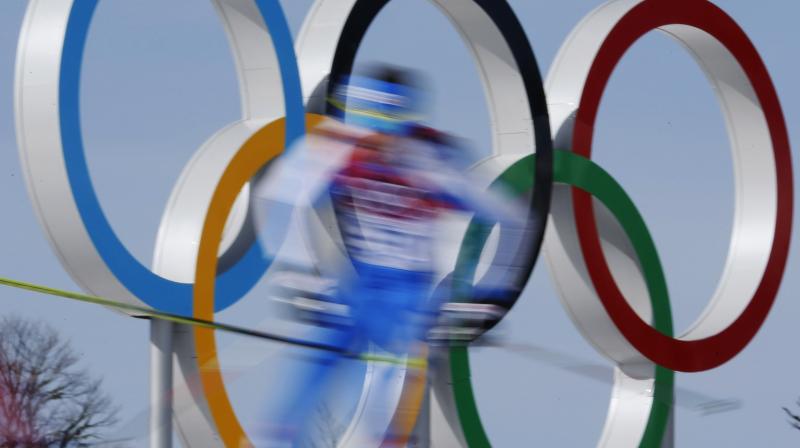More than 1,000 Russian athletes in 'institutionalised' doping

London: More than 1,000 Russian athletes in about 30 sports took part in an "institutional conspiracy" to use banned drugs at the Sochi and London Olympics and other global events, doping investigator Richard Mclaren said Friday.
International sport had been "hijacked" by the Russians, according to the Canadian lawyer who has previously accused Russia of "state-sponsored" cheating.
He said in his new report for the World Anti-Doping Agency that he had confirmed the switching of samples at the Sochi Winter Olympics in 2014 and that salt and coffee was used to manipulate samples when checked by international experts.
More than 1,000 athletes in the summer and winter Olympics and Paralympics "can be identified as being involved in or benefiting from manipulations to conceal positive testing," the report said.
Information on 695 summer and winter Olympic athletes had been sent to sports federations. He gave no names but said "well known and elite level athletes" had tests declared to WADA "falsified".
"A cover-up that evolved over the years from uncontrolled chaos to an instutionalised and disciplined medal-winning strategy and conspiracy," McLaren said as he introduced his report.
McLaren's report said the doping started in about 2011 but the sports ministry under Vitaly Mutko, now a deputy prime minister, took control from 2012 fearing that the cheating would be detected.
"An institutional conspiracy existed across summer and winter sports athletes who participated with Russian officials within the ministry of sport and its infrastructure," said McLaren.
"These activities were supported by senior Russian officials, including the minister and deputy minister of sport."
Mutko, who has denied any involvement, was not personally named. He was barred from going to the Rio Olympics by the International Olympic Committee in August but has since been promoted by President Vladimir Putin.
Asked his reaction to Mutko's promotion, McLaren said "No I am not surprised."
"For years, international sports competitions have unknowingly been hijacked by the Russians," he told a press conference.
"Coaches and athletes have been competing on an uneven field. Sports fans and spectators have been deceived."
McLaren said Russian officials could be trusted "but they need to reform themselves".
The system was "refined" in the buildup to the 2012 London Olympics and then further for the 2013 Universiade, the world athletics championships in Moscow in 2013 and particularly for the 2014 Sochi Games.
Russia won 24 golds, 26 silvers and 32 bronze medals in London with no failed tests at the time.
He said there was evidence that the "washout" of samples before London was taking part on a weekly basis in at least athletics and weightlifting.
"The Russian team corrupted the London Games on an unprecedented scale."
McLaren's first report, released in July, led to more than 110 Russian athletes being banned from the Rio Olympics but also caused a major rift between the IOC and WADA.
He said this infighting has got to end to be able to tackle global doping.
The report is a huge new blow to Russia, which is already battling to get back into the International Association of Athletics Federations (IAAF) because of an earlier inquiry.
Russia has said the earlier McLaren report lacked detail and needed more investigation.
New Sports Minister Pavel Kolobkov, a former Olympic champion fencer, said Thursday that the country had "declared war" against doping. There are many doubters over Russian efforts however.
The IAAF and WADA are keeping to their suspension of Russia, meaning the country may not be able to compete at the world athletics championships in August.
WADA president Craig Reedie said last month that Russia was a long way off returning to the global body.
Anti-doping officials have complained about a lack of access to closed cities where athletes are training and also to a Moscow laboratory where samples sought by international sporting federations are kept.
Athletes from Russia and other East European states have dominated the list of cheats caught in new tests on 1,243 samples taken at the 2008 Beijing and 2012 London Olympics.
Tennis star Maria Sharapova has been among a host of Russians ordered banned because of doping failures over the past 18 months.
IOC medical director Richard Budgett said Wednesday that there is more bad news to come from the London tests which are not yet finished.
"There will be many more to come in the coming weeks and months," Budgett warned without saying which countries were involved.

